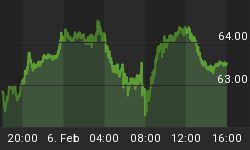Last week Congress voted to encourage participation in the 2010 census. I voted "No" on this resolution for the simple, obvious reason that the census- like so many government programs- has grown far beyond what the framers of our Constitution intended. The invasive nature of the current census raises serious questions about how and why government will use the collected information. It also demonstrates how the federal bureaucracy consistently encourages citizens to think of themselves in terms of groups, rather than as individual Americans. The not so subtle implication is that each group, whether ethnic, religious, social, or geographic, should speak up and demand its "fair share" of federal largesse.
Article I, section 2 of the Constitution calls for an enumeration of citizens every ten years, for the purpose of apportioning congressional seats among the various states. In other words, the census should be nothing more than a headcount. It was never intended to serve as a vehicle for gathering personal information on citizens.
But our voracious federal government thrives on collecting information. In fact, to prepare for the 2010 census state employees recorded GPS coordinates for every front door in the United States so they could locate individuals with greater accuracy! Once duly located, individuals are asked detailed questions concerning their name, address, race, home ownership, and whether they periodically spend time in prison or a nursing home - just to name a few examples.
From a constitutional perspective, of course, the answer to each of these questions is: "None of your business." But the bigger question is - why government is so intent on compiling this information in the first place?
The Census Bureau claims that collected information is not shared with any federal agency; but rather is kept under lock and key for 72 years. It also claims that no information provided to census takers can be used against you by the government.
However, these promises can and have been abused in the past. Census data has been used to locate men who had not registered for the draft. Census data also was used to find Japanese-Americans for internment camps during World War II. Furthermore, the IRS has applied census information to detect alleged tax evaders. Some local governments even have used census data to check for compliance with zoning regulations.
It is not hard to imagine that information compiled by the census could be used against people in the future, despite claims to the contrary and the best intentions of those currently in charge of the Census Bureau. The government can and does change its mind about these things, and people have a right to be skeptical about government promises.
Yet there are consequences for not submitting to the census and its intrusive questions. If the form is not mailed back in time, households will experience the "pleasure" of a visit by a government worker asking the questions in person. If the government still does not get the information it wants, it can issue a fine of up to $5000.
If the federal government really wants to increase compliance with the census, it should abide by the Constitution and limit its inquiry to one simple question: How many people live here?















